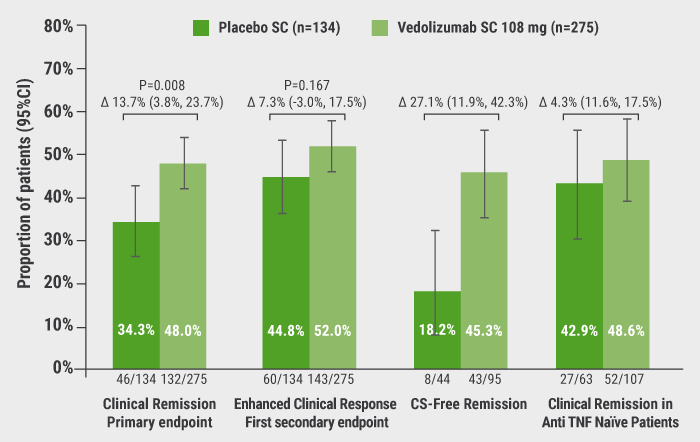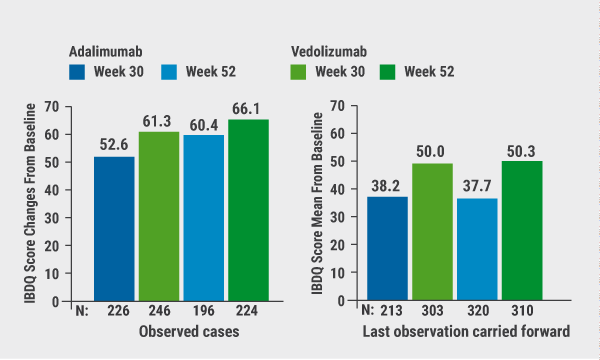There is an urgent need for the identification of pathways and markers involved in fibrogenesis. As intestinal fibrosis mainly occurs in the deeper intestinal layers, immune cell characterisation of mucosal and deeper intestinal layers of the ileum was performed. The resected ileum of 17 CD and 6 colorectal cancer (CRC) patients undergoing right hemicolectomy were collected and divided in macroscopically inflamed and fibrotic tissue.
In 12 CD patients, an additional macroscopically inflamed region next to the fibrotic area was identified, with a lower fibrosis score than in the fibrotic area (4.0 vs 6.0; P=0.016). Both fibrotic and inflamed regions showed increased inflammation versus proximal unaffected CD and control (non-IBD) ileum (4.0 and 4.5 vs 1.0 and 0.0; P<0.001 for all). In the inflamed ileum, no differences in immune populations were observed between mucosa and deeper layers. In contrast, CD19-positive B cells were specifically enriched in fibrotic ileum versus proximal CD mucosa (32.2% vs 20.4% of CD45-positive cells; P=0.008). In the deeper layers of fibrostenotic CD ileum, alternative innate immune cells, such as mature CD11c-postive dendritic cells (P=0.042) and CD206-positive macrophages (P<0.001), were enriched compared to the mucosa overlying the fibrotic tissue. The authors concluded that, as these cells are specifically expanded in the deeper intestinal layers, this finding may lead to identifying targets for new anti-fibrotic therapies.
- Creyns B, et al. ECCO-IBD 2020, DOP83.
Posted on
Previous Article
« Association between meat consumption and IBD risk Next Article
Re-inducing inflammation in organoids from UC patients »
« Association between meat consumption and IBD risk Next Article
Re-inducing inflammation in organoids from UC patients »
Table of Contents: ECCO 2020
Featured articles
Gut Microbiome as Treatment Target
Response to faecal microbiota transplantation in UC
Bioactives produced by gut bacteria to modulate immune response
Big Data Analysis
Multi-omics help describe CD phenotypes
The positive impact of genetic data on drug development
Experimental Therapies: Study Results
AMT-101: an oral human IL-10 fusion protein
Phase 2 results of first-in-class TL1A inhibitor
Open-label extension study of risankizumab: final results
Clinical remission after dose escalation of upadacitinib
Short- and Long-Term Treatment Results
Infliximab discontinuation increases relapse risk
Tofacitinib ‘real-world’ effectiveness in active UC
Subcutaneous ustekinumab as maintenance therapy in UC
Subcutaneous vedolizumab maintenance therapy in CD
Vedolizumab treatment persistence and safety
Specific Therapeutic Strategies
Impact of strategies on intestinal resection rate
Early ileocaecal resection in CD patients failing conventional treatment
Biologics before surgery in IBD do not elevate infection risk
Top-down infliximab superior to step-up in children with CD
High versus standard adalimumab in active UC
Head-to-Head Comparison of Treatments
Vedolizumab and anti-TNF therapies: a real-world comparison
Cancer Risk
Increased risk of small bowel cancer in IBD
Increased incidence of colorectal cancer and death in CD
Risk of rectal, anal cancer increased in perianal CD
Glyco-fingerprint as risk factor of UC-associated cancer
Miscellaneous Topics
Resolution of mucosal inflammation has dramatic effect
PICaSSO validated in real-life study
Re-inducing inflammation in organoids from UC patients
Role of immune cells in intestinal fibrosis
Association between meat consumption and IBD risk
CD exclusion diet corrects dysbiosis
Related Articles

April 14, 2020
Subcutaneous vedolizumab maintenance therapy in CD

April 14, 2020
Effects of vedolizumab versus adalimumab on QoL

April 14, 2020
Tofacitinib ‘real-world’ effectiveness in active UC
© 2024 Medicom Medical Publishers. All rights reserved. Terms and Conditions | Privacy Policy
HEAD OFFICE
Laarderhoogtweg 25
1101 EB Amsterdam
The Netherlands
T: +31 85 4012 560
E: publishers@medicom-publishers.com

